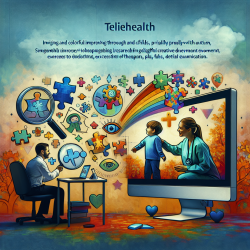Introduction
The COVID-19 pandemic has undeniably reshaped the healthcare landscape, amplifying existing challenges and introducing new ones. Among the most affected are mid-career female physicians in the military health system, who have faced unique stressors leading to increased burnout. A recent study titled "Assessing mid-career female physician burnout in the military health system: finding joy in practice after the COVID-19 pandemic" provides valuable insights into the factors contributing to burnout and potential strategies to mitigate it.
Understanding Burnout in Military Female Physicians
Burnout among physicians is characterized by emotional exhaustion, depersonalization, and a reduced sense of personal accomplishment. It is a significant concern, as it affects not only the well-being of healthcare providers but also the quality of care they deliver. The study in question focused on mid-career female physicians in the military, a group particularly vulnerable due to the dual demands of military service and healthcare provision.
Key Findings from the Study
The research identified several themes from interviews with 22 mid-career female military physicians:
- Camaraderie and Teamwork: Building rapport and having strong relationships with coworkers were crucial for job satisfaction.
- Choice and Autonomy: Physicians expressed a desire for more control over their schedules and less administrative burden.
- Meaning and Purpose: Many physicians found fulfillment in mentoring others and making a difference in patients' lives.
- Participative Management: A lack of support and recognition from leadership was a significant source of dissatisfaction.
- Physical and Psychological Safety: Long work hours and barriers to mental healthcare access were prevalent issues.
Strategies for Improvement
Based on the findings, several strategies can be implemented to improve the work environment for military female physicians:
- Enhancing Teamwork: Encouraging team-building activities and fostering a supportive work culture can enhance camaraderie.
- Increasing Autonomy: Providing flexible scheduling options and reducing administrative tasks can empower physicians.
- Promoting Participative Management: Leaders should actively listen to and incorporate feedback from physicians to create a more inclusive work environment.
- Ensuring Access to Mental Health Resources: Improving access to mental health services and reducing stigma can support physicians' well-being.
Encouraging Further Research
While this study provides valuable insights, further research is needed to explore burnout in other healthcare settings and among different demographics. By continuing to investigate these issues, we can develop more comprehensive strategies to support healthcare providers and improve patient care.
To read the original research paper, please follow this link: Assessing mid-career female physician burnout in the military health system: finding joy in practice after the COVID-19 pandemic.










